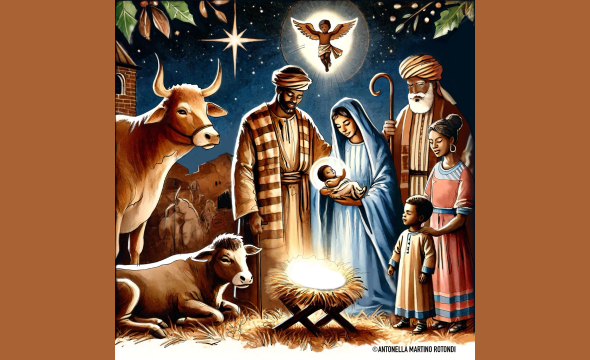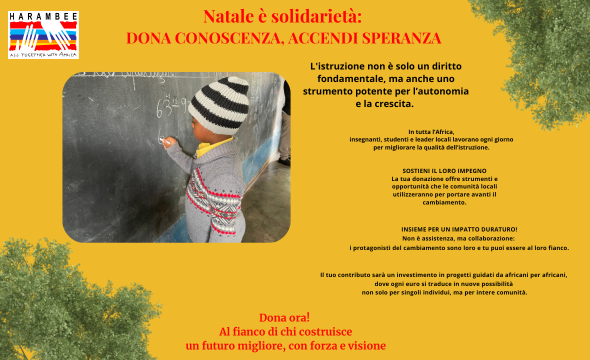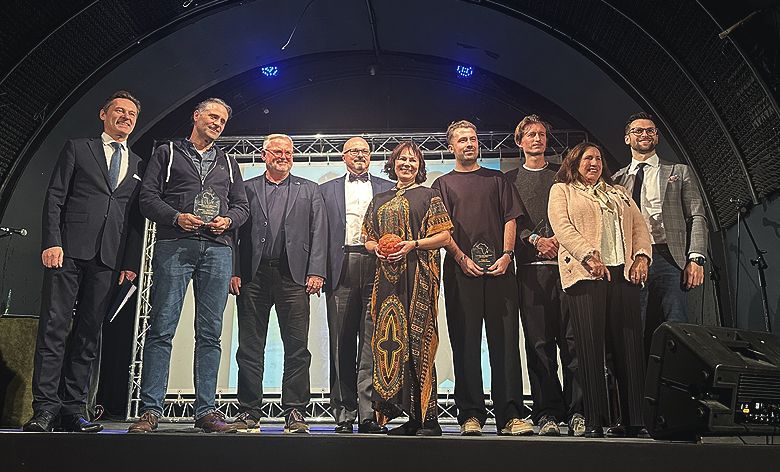The Harambee Webinar on the occasion of World Africa Day
A fruitful dialogue, with the contribution of experts from different backgrounds, on the need for complex answers to complex problems. On the occasion of World Africa Day (25 May) and the 5th anniversary of Pope Francis' Encyclical Laudato Sì, Harambee promoted an online seminaron the theme: "Climate Emergency and Africa", in a post Covid-19 perspective. The webinar was made possible also thanks to the collaboration with the Spanish NGO Fundación Promoción Social-FPS, moderation was entrusted to Massimo Zaurrini, director of the economic monthly magazine "Africa and Business".
The reflection started from the central premise of the papal Encyclical, namely, the idea of an integral ecology: man is an integral part of nature and the environment in which he lives, it is therefore necessary to consider the interaction between the human and social dimensions. And the environmental problem - with all its facets and social repercussions - concerns everyone.
"The impact of COVID-19 will disproportionately affect low-income countries in Africa and could lead to a food and nutritional crisis far beyond the current ones," said Giammichele De Maio, head of relations with NGOs at the World Food Programme.
Food insecurity and malnutrition could affect groups that previously were able to meet their needs. "At this time it is necessary to ensure support to save lives and protect livelihoods while strengthening systems. Strong focus is needed on the most vulnerable groups most at risk from natural and climatic hazards". De Maio then presented the action plan drawn up by the WFP to respond to the emergency.
Carlo Papa, Director of Enel Foundation, then spoke, presenting some concrete cases to illustrate the impact of climate change on African ecosystems; Papa presented some African business initiatives, wanting to underline the growing attention towards a sustainable future.
Then Izael Pereira Da Silva, Deputy Vice Chancellor at Strathmore University in Nairobi, Kenya, took the floor, "it is necessary to form generations capable of building a greener future, but also to strengthen an education that is not only academic and technical: explaining to new generations the importance of pursuing good and truth as a sustainable way of living on this planet is part of our responsibility at Strathmore"; for this reason, the social commitment of students is an integral part of the academic curriculum.
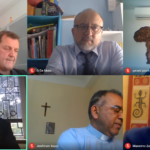 Gerard Poch, head of FPS projects in Ethiopia, reported on the organization's field experience in a program to mitigate the consequences of climate change and develop environmental protection measures, promoting socio-economic growth in the Somali Region, to the east of the country where, as Poch said, "The agricultural sector contributes about 45% of GDP and 80% of employment" and where, therefore, "Climate change has a strong impact on the survival of the entire population".
The work was concluded by D. Joshtrom Isaac Kureethadam SDB, head of the Ecology Sector at the Department for Integral Human Development of the Holy See. In fact, the "Covid-19 Vatican Commission" was set up at the Dicastery, the task force commissioned by Pope Francis to respond to the immediate needs of the local Churches, but above all as a mechanism for analysis and reflection on the socio-economic, cultural, political and spiritual consequences of the pandemic.
Gerard Poch, head of FPS projects in Ethiopia, reported on the organization's field experience in a program to mitigate the consequences of climate change and develop environmental protection measures, promoting socio-economic growth in the Somali Region, to the east of the country where, as Poch said, "The agricultural sector contributes about 45% of GDP and 80% of employment" and where, therefore, "Climate change has a strong impact on the survival of the entire population".
The work was concluded by D. Joshtrom Isaac Kureethadam SDB, head of the Ecology Sector at the Department for Integral Human Development of the Holy See. In fact, the "Covid-19 Vatican Commission" was set up at the Dicastery, the task force commissioned by Pope Francis to respond to the immediate needs of the local Churches, but above all as a mechanism for analysis and reflection on the socio-economic, cultural, political and spiritual consequences of the pandemic.
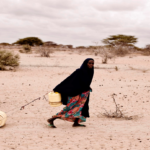 Don Josh emphasized a "Metaphysics of interrelationality: since everything is intimately related and the current problems require a look that takes into account all aspects of the world crisis, it is good to pause and reflect on the different elements of an integral ecology", then illustrating the training program (promoted by the Department for the year of celebration of Laudate Sì) dedicated to the different sectors of civil society.
Don Josh emphasized a "Metaphysics of interrelationality: since everything is intimately related and the current problems require a look that takes into account all aspects of the world crisis, it is good to pause and reflect on the different elements of an integral ecology", then illustrating the training program (promoted by the Department for the year of celebration of Laudate Sì) dedicated to the different sectors of civil society.
 Gerard Poch, head of FPS projects in Ethiopia, reported on the organization's field experience in a program to mitigate the consequences of climate change and develop environmental protection measures, promoting socio-economic growth in the Somali Region, to the east of the country where, as Poch said, "The agricultural sector contributes about 45% of GDP and 80% of employment" and where, therefore, "Climate change has a strong impact on the survival of the entire population".
The work was concluded by D. Joshtrom Isaac Kureethadam SDB, head of the Ecology Sector at the Department for Integral Human Development of the Holy See. In fact, the "Covid-19 Vatican Commission" was set up at the Dicastery, the task force commissioned by Pope Francis to respond to the immediate needs of the local Churches, but above all as a mechanism for analysis and reflection on the socio-economic, cultural, political and spiritual consequences of the pandemic.
Gerard Poch, head of FPS projects in Ethiopia, reported on the organization's field experience in a program to mitigate the consequences of climate change and develop environmental protection measures, promoting socio-economic growth in the Somali Region, to the east of the country where, as Poch said, "The agricultural sector contributes about 45% of GDP and 80% of employment" and where, therefore, "Climate change has a strong impact on the survival of the entire population".
The work was concluded by D. Joshtrom Isaac Kureethadam SDB, head of the Ecology Sector at the Department for Integral Human Development of the Holy See. In fact, the "Covid-19 Vatican Commission" was set up at the Dicastery, the task force commissioned by Pope Francis to respond to the immediate needs of the local Churches, but above all as a mechanism for analysis and reflection on the socio-economic, cultural, political and spiritual consequences of the pandemic.
 Don Josh emphasized a "Metaphysics of interrelationality: since everything is intimately related and the current problems require a look that takes into account all aspects of the world crisis, it is good to pause and reflect on the different elements of an integral ecology", then illustrating the training program (promoted by the Department for the year of celebration of Laudate Sì) dedicated to the different sectors of civil society.
Don Josh emphasized a "Metaphysics of interrelationality: since everything is intimately related and the current problems require a look that takes into account all aspects of the world crisis, it is good to pause and reflect on the different elements of an integral ecology", then illustrating the training program (promoted by the Department for the year of celebration of Laudate Sì) dedicated to the different sectors of civil society.



